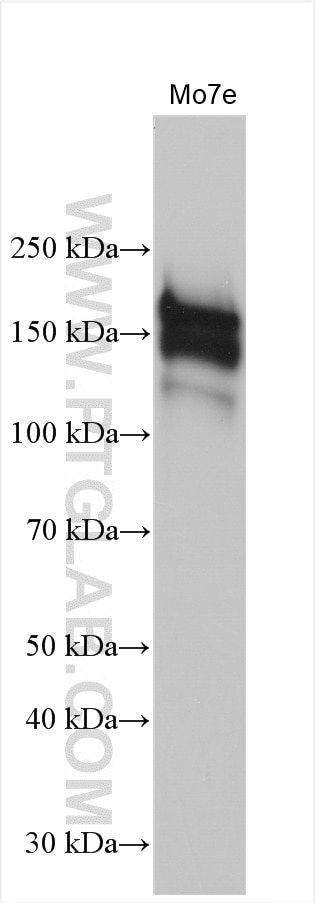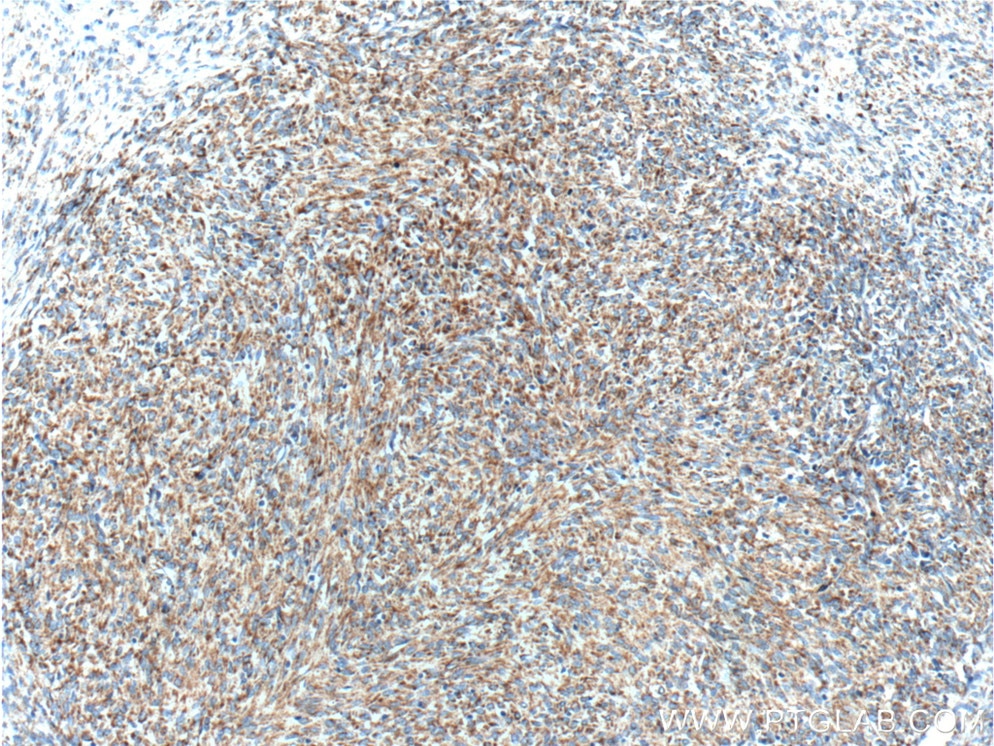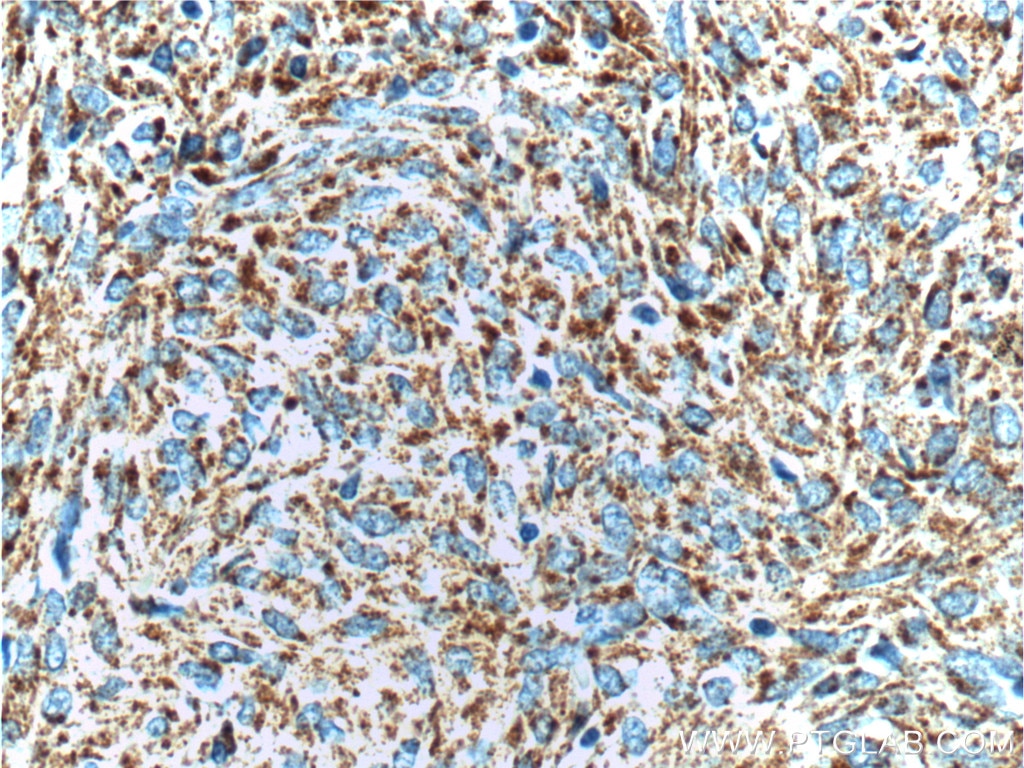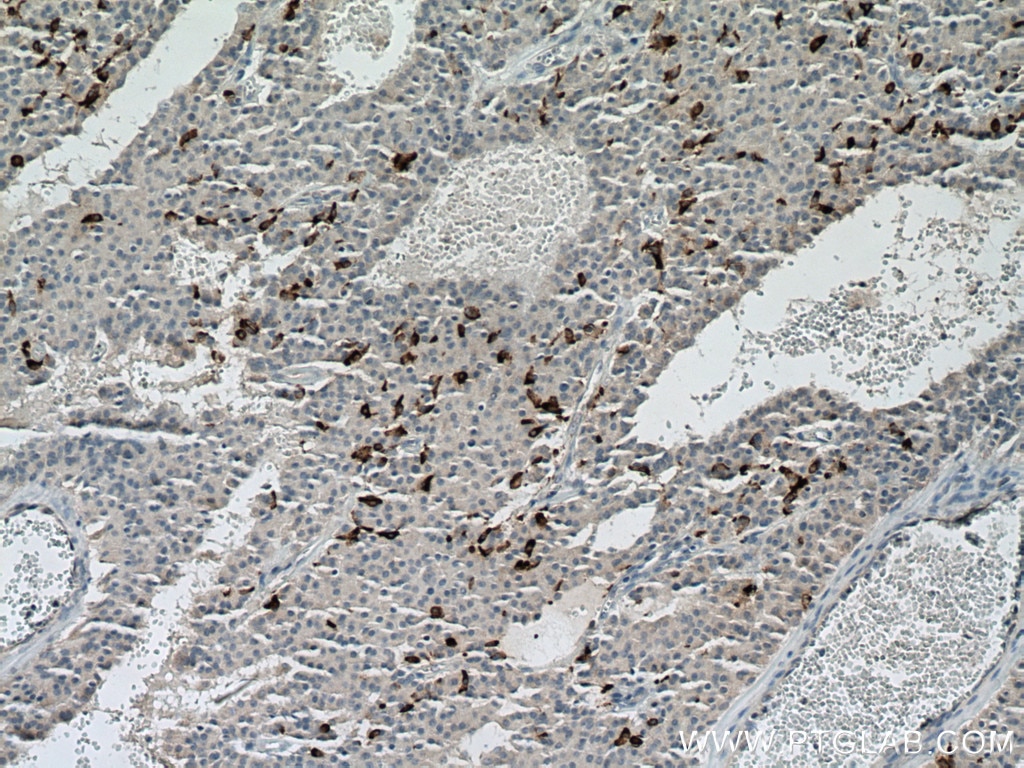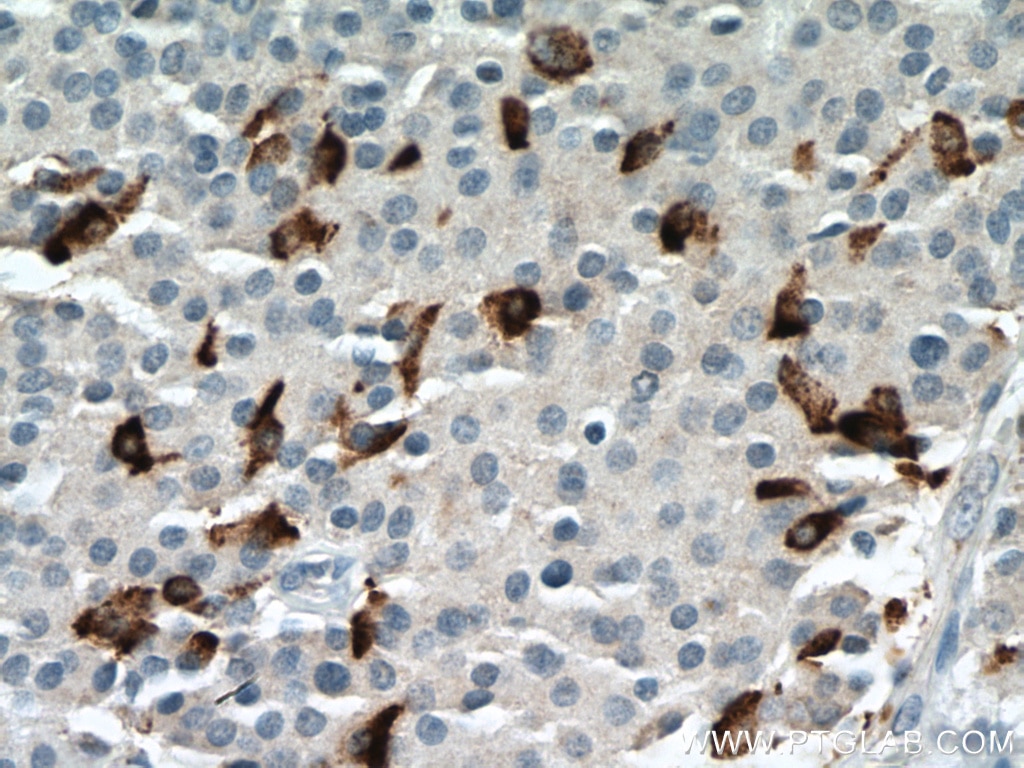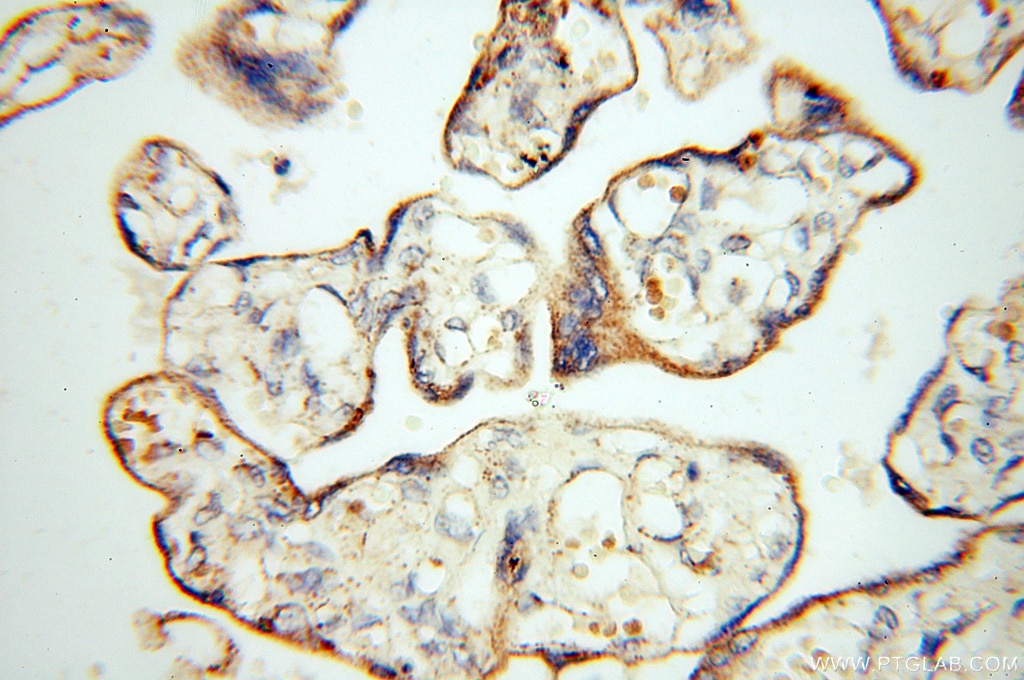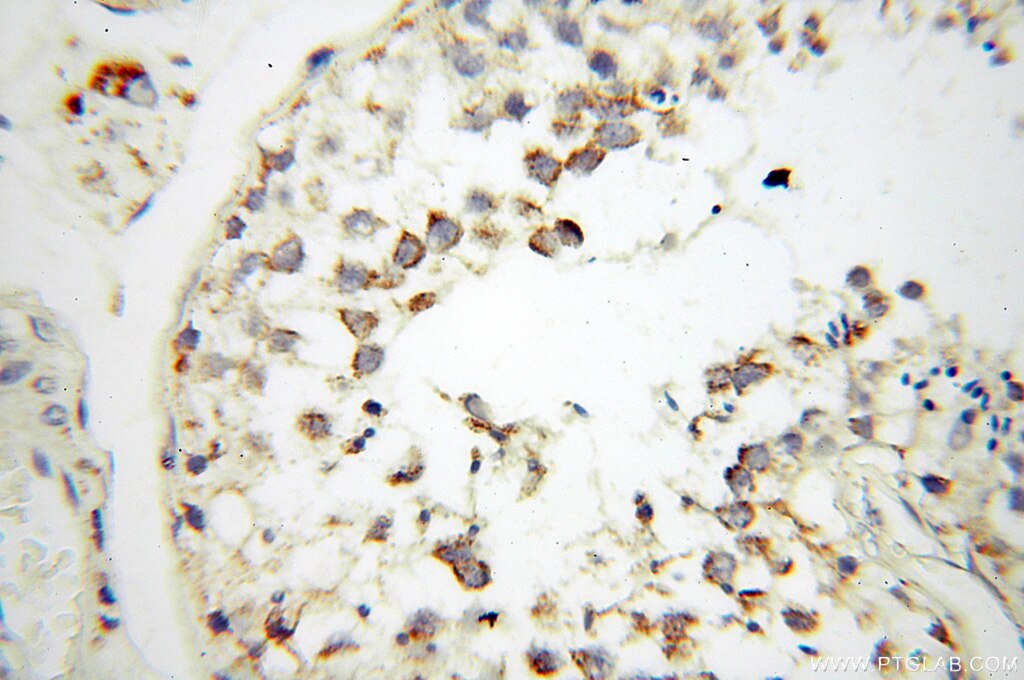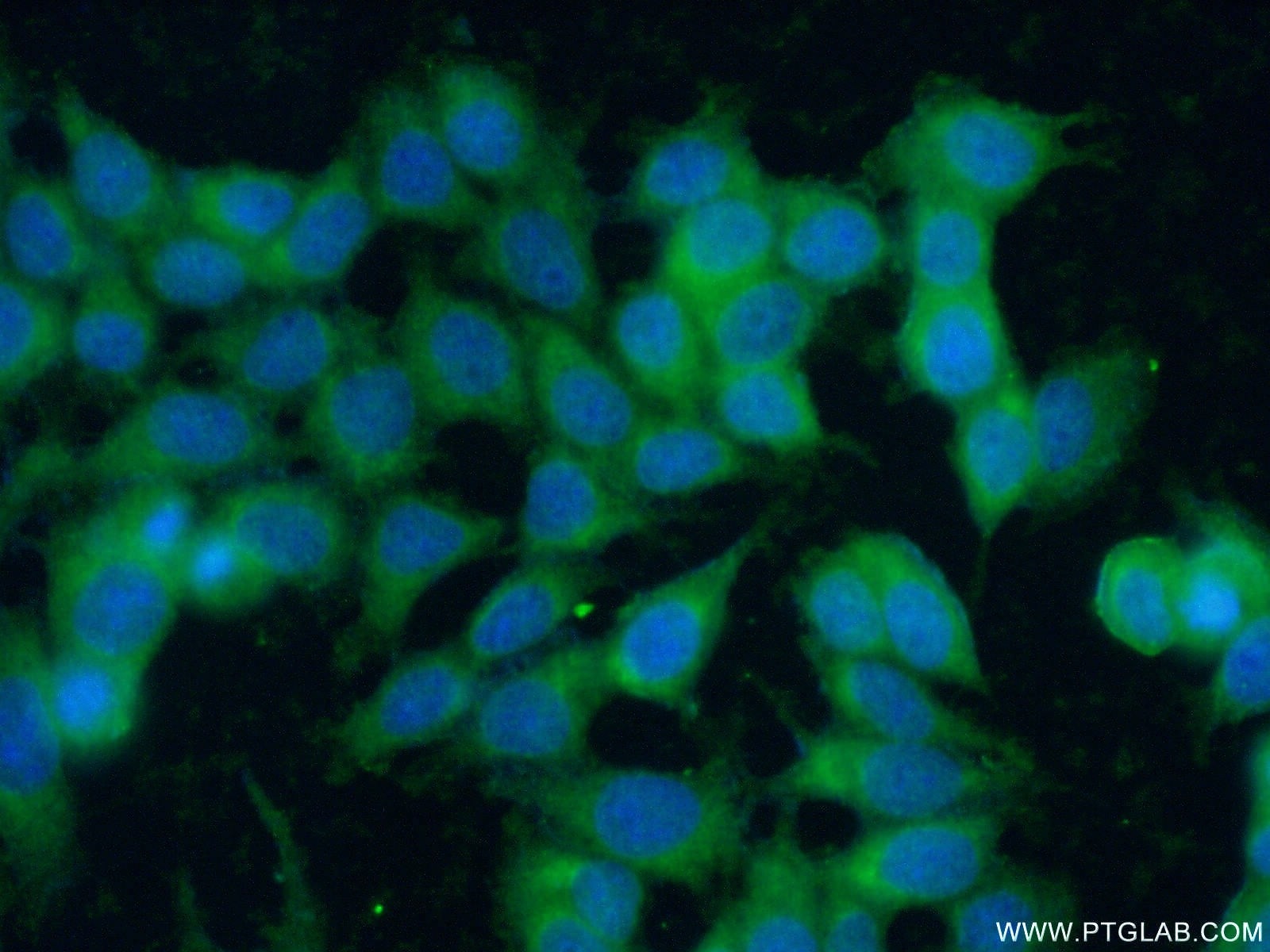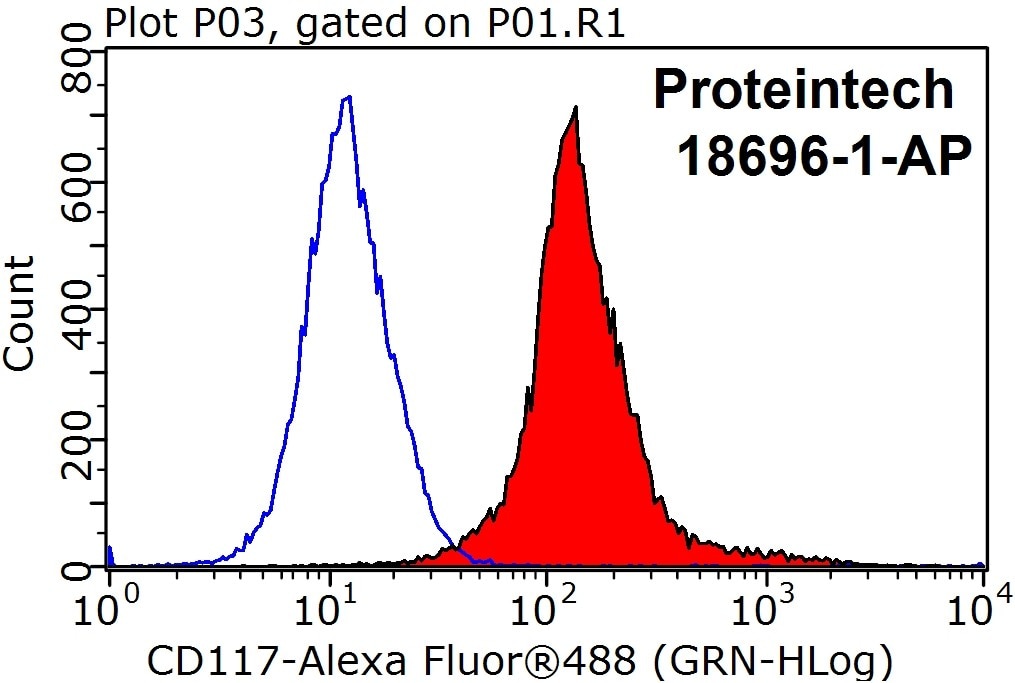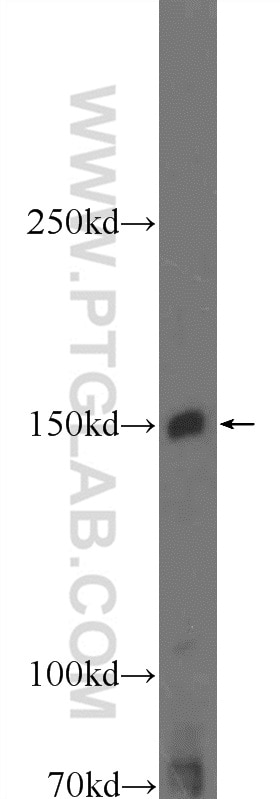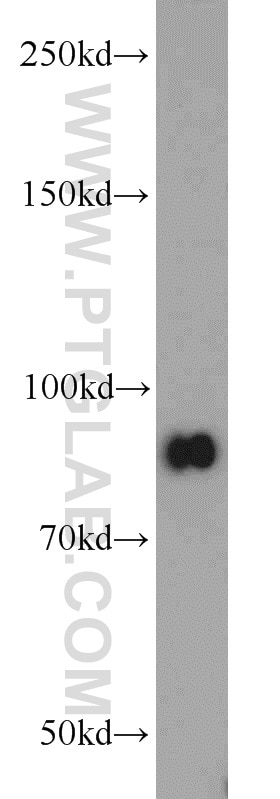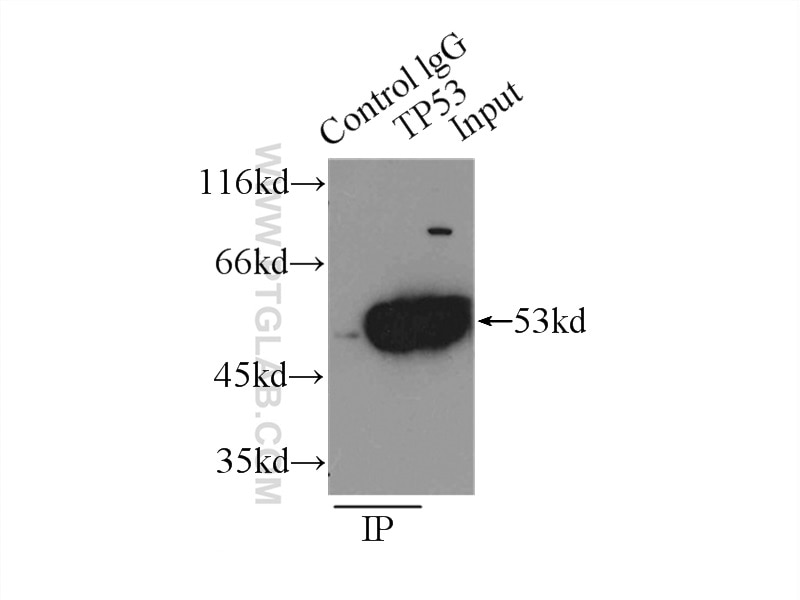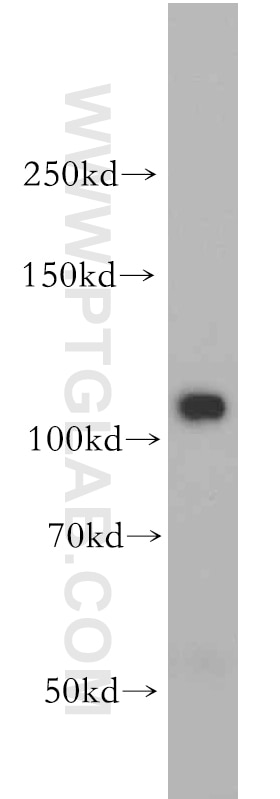c-Kit/CD117 Polyklonaler Antikörper
c-Kit/CD117 Polyklonal Antikörper für FC, IF, IHC, WB, ELISA
Wirt / Isotyp
Kaninchen / IgG
Getestete Reaktivität
human und mehr (2)
Anwendung
WB, IHC, IF, FC, ELISA
Konjugation
Unkonjugiert
Kat-Nr. : 18696-1-AP
Synonyme
Galerie der Validierungsdaten
Geprüfte Anwendungen
| Erfolgreiche Detektion in WB | Mo7e cells |
| Erfolgreiche Detektion in IHC | Stromatumorgewebe, humanes Hodengewebe, humanes Plazenta-Gewebe, Insulinomgewebe Hinweis: Antigendemaskierung mit TE-Puffer pH 9,0 empfohlen. (*) Wahlweise kann die Antigendemaskierung auch mit Citratpuffer pH 6,0 erfolgen. |
| Erfolgreiche Detektion in IF | MCF-7-Zellen |
| Erfolgreiche Detektion in FC | MCF-7-Zellen |
Empfohlene Verdünnung
| Anwendung | Verdünnung |
|---|---|
| Western Blot (WB) | WB : 1:1000-1:4000 |
| Immunhistochemie (IHC) | IHC : 1:50-1:500 |
| Immunfluoreszenz (IF) | IF : 1:50-1:500 |
| Durchflusszytometrie (FC) | FC : 0.20 ug per 10^6 cells in a 100 µl suspension |
| It is recommended that this reagent should be titrated in each testing system to obtain optimal results. | |
| Sample-dependent, check data in validation data gallery | |
Veröffentlichte Anwendungen
| KD/KO | See 1 publications below |
| WB | See 7 publications below |
| IHC | See 8 publications below |
| IF | See 7 publications below |
Produktinformation
18696-1-AP bindet in WB, IHC, IF, FC, ELISA c-Kit/CD117 und zeigt Reaktivität mit human
| Getestete Reaktivität | human |
| In Publikationen genannte Reaktivität | human, Maus, Ratte |
| Wirt / Isotyp | Kaninchen / IgG |
| Klonalität | Polyklonal |
| Typ | Antikörper |
| Immunogen | Peptid |
| Vollständiger Name | v-kit Hardy-Zuckerman 4 feline sarcoma viral oncogene homolog |
| Berechnetes Molekulargewicht | 110 kDa |
| Beobachtetes Molekulargewicht | 140-160 kDa |
| GenBank-Zugangsnummer | BC071593 |
| Gene symbol | KIT |
| Gene ID (NCBI) | 3815 |
| Konjugation | Unkonjugiert |
| Form | Liquid |
| Reinigungsmethode | Antigen-Affinitätsreinigung |
| Lagerungspuffer | PBS mit 0.02% Natriumazid und 50% Glycerin pH 7.3. |
| Lagerungsbedingungen | Bei -20°C lagern. Nach dem Versand ein Jahr lang stabil Aliquotieren ist bei -20oC Lagerung nicht notwendig. 20ul Größen enthalten 0,1% BSA. |
Hintergrundinformationen
KIT, also named as SCFR, c-Kit and CD117, is a transmembrane tyrosine kinase encoded by the c-Kit proto oncogene. It is a type 3 transmembrane receptor for MGF (mast cell growth factor, also known as stem cell factor). KIT acts to regulate a variety of biological responses including cell proliferation, apoptosis, chemotaxis and adhesion. Ligand(SCF) binding to the extracellular domain leads to autophosphorylation on several tyrosine residues within the cytoplasmic domain, and activation. Phosphorylation at tyrosine 721 of KIT allows binding and activation of PI3 kinase. Loss of expression of KIT appears to be associated with progression of some tumors (melanoma) and autocrine/paracrine stimulation of the kit/SCF system may participate in human solid tumors such as lung, breast, testicular and gynecological malignancies. Mutations in Kit have been found to be important for tumor growth and progression in a variety of cancers including mast cell diseases, gastrointestinal stromal tumor, acute myeloid leukemia, Ewing sarcoma and lung cancer.
Protokolle
| Produktspezifische Protokolle | |
|---|---|
| WB protocol for c-Kit/CD117 antibody 18696-1-AP | Protokoll herunterladen |
| IHC protocol for c-Kit/CD117 antibody 18696-1-AP | Protokoll herunterladen |
| IF protocol for c-Kit/CD117 antibody 18696-1-AP | Protokoll herunterladen |
| FC protocol for c-Kit/CD117 antibody 18696-1-AP | Protokoll herunterladen |
| Standard-Protokolle | |
|---|---|
| Klicken Sie hier, um unsere Standardprotokolle anzuzeigen |
Publikationen
| Species | Application | Title |
|---|---|---|
Mech Ageing Dev Acceleration of melanocyte senescence by the proinflammatory cytokines IFNγ and TNFα impairs the repigmentation response of vitiligo patients to narrowband ultraviolet B (NBUVB) phototherapy | ||
Front Cell Dev Biol Single-Cell Sequencing Unveils the Heterogeneity of Nonimmune Cells in Chronic Apical Periodontitis. | ||
Front Immunol Immune Infiltrating Cells-Derived Risk Signature Based on Large-scale Analysis Defines Immune Landscape and Predicts Immunotherapy Responses in Glioma Tumor Microenvironment. | ||
J Exp Clin Cancer Res Growth differentiation factor 15 contributes to marrow adipocyte remodeling in response to the growth of leukemic cells. | ||
Andrology Exposure to elevated temperature affects the expression of piwi-interacting RNAs and associated transcripts in mouse testes | ||
Tumour Biol Orai1 mediates tumor-promoting store-operated Ca(2+) entry in human gastrointestinal stromal tumors via c-KIT and the extracellular signal-regulated kinase pathway. |
